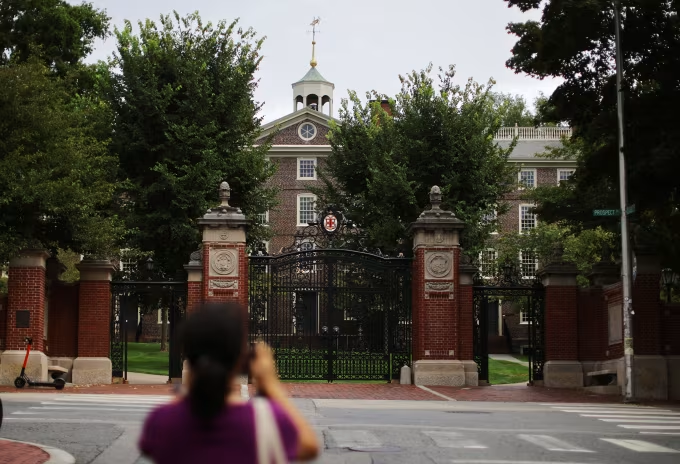Several major U.S. universities are currently reviewing a new higher education compact proposed by the Trump Administration, a move that has sparked widespread discussion over academic freedom, institutional autonomy, and the future of federal-university collaboration.
Vanderbilt University and the University of Arizona are among the institutions taking a cautious approach. Both have confirmed they are reviewing the compact, with Arizona’s president noting that the proposal “has generated a wide range of reactions and perspectives.” Neither university has indicated whether it plans to formally join the initiative.
At the University of Virginia, administrators have formed a dedicated working group to evaluate the compact’s provisions. University officials stressed that “it would be difficult for the University to agree to certain provisions,” reflecting concerns about potential limitations on the institution’s ability to govern itself independently.
Dartmouth College President Sian Leah Beilock emphasized the school’s steadfast commitment to academic independence. While she did not outline the college’s final decision regarding the compact, she made clear that Dartmouth “will never compromise our academic freedom and our ability to govern ourselves,” highlighting a broader sentiment among many institutions wary of federal overreach.
The University of Texas at Austin, however, presented a markedly different perspective. Officials stopped short of confirming whether they would sign the compact but stated that the university “welcomes the new opportunity presented to us and looks forward to working with the Trump Administration on it.” This more receptive stance underscores the varied approaches institutions are taking toward federal engagement.
Experts note that the mixed reactions among universities reflect a longstanding tension in American higher education: the need to balance collaboration with federal authorities while maintaining institutional independence and protecting academic integrity. As universities deliberate, the debate is likely to continue, with stakeholders closely watching how each institution navigates the potential benefits and risks of joining the compact.
With higher education policy increasingly in the national spotlight, these decisions could have significant implications for how U.S. universities interact with federal initiatives in the coming years. For now, institutions are weighing carefully, considering both the opportunities for partnership and the critical importance of preserving their governance structures and academic freedoms.

